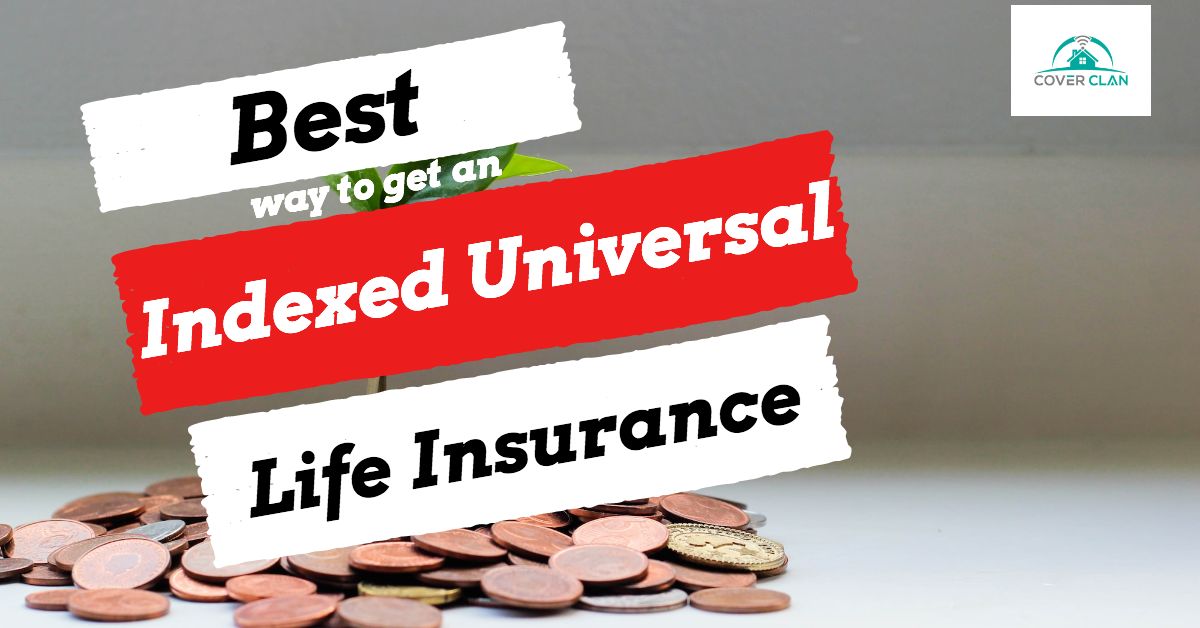All Categories
Featured
Table of Contents
Do they contrast the IUL to something like the Vanguard Total Amount Supply Market Fund Admiral Shares with no lots, an expense proportion (EMERGENCY ROOM) of 5 basis points, a turn over ratio of 4.3%, and an exceptional tax-efficient record of distributions? No, they contrast it to some terrible proactively managed fund with an 8% tons, a 2% ER, an 80% turnover ratio, and a horrible document of temporary resources gain distributions.
Shared funds typically make yearly taxable circulations to fund owners, even when the worth of their fund has actually decreased in value. Shared funds not only call for income reporting (and the resulting yearly tax) when the common fund is increasing in worth, however can also enforce earnings taxes in a year when the fund has actually gone down in worth.
That's not just how mutual funds work. You can tax-manage the fund, collecting losses and gains in order to minimize taxed distributions to the capitalists, however that isn't in some way mosting likely to alter the reported return of the fund. Only Bernie Madoff kinds can do that. IULs stay clear of myriad tax obligation catches. The possession of common funds might call for the shared fund owner to pay approximated tax obligations.

IULs are very easy to place so that, at the owner's death, the recipient is exempt to either revenue or inheritance tax. The exact same tax decrease techniques do not function nearly as well with shared funds. There are countless, frequently pricey, tax catches related to the moment trading of mutual fund shares, catches that do not put on indexed life insurance policy.
Possibilities aren't extremely high that you're going to go through the AMT due to your shared fund distributions if you aren't without them. The remainder of this one is half-truths at best. For example, while it is real that there is no earnings tax due to your successors when they inherit the proceeds of your IUL policy, it is likewise real that there is no income tax because of your heirs when they inherit a shared fund in a taxed account from you.
Iul Life Insurance Vs Whole Life
There are far better methods to stay clear of estate tax obligation issues than buying investments with low returns. Mutual funds might trigger income tax of Social Security benefits.

The growth within the IUL is tax-deferred and may be taken as tax obligation totally free earnings using car loans. The plan owner (vs. the shared fund supervisor) is in control of his or her reportable income, thus enabling them to decrease or also eliminate the taxation of their Social Protection advantages. This one is wonderful.
Below's one more very little issue. It's real if you acquire a mutual fund for state $10 per share simply before the distribution date, and it distributes a $0.50 circulation, you are after that going to owe taxes (probably 7-10 cents per share) although that you haven't yet had any kind of gains.
In the end, it's actually about the after-tax return, not just how much you pay in taxes. You're likewise most likely going to have even more money after paying those tax obligations. The record-keeping needs for having common funds are significantly extra complex.
With an IUL, one's records are maintained by the insurer, copies of annual declarations are mailed to the owner, and distributions (if any kind of) are totaled and reported at year end. This one is likewise kind of silly. Obviously you should maintain your tax records in instance of an audit.
Index Linked Term Insurance
All you have to do is push the paper right into your tax obligation folder when it appears in the mail. Rarely a reason to buy life insurance. It's like this man has actually never ever purchased a taxable account or something. Shared funds are typically part of a decedent's probated estate.
Furthermore, they go through the hold-ups and costs of probate. The proceeds of the IUL plan, on the other hand, is constantly a non-probate distribution that passes beyond probate straight to one's named recipients, and is as a result not subject to one's posthumous creditors, unwanted public disclosure, or comparable hold-ups and costs.
We covered this set under # 7, yet simply to evaluate, if you have a taxable common fund account, you must put it in a revocable trust (or perhaps less complicated, utilize the Transfer on Fatality classification) in order to avoid probate. Medicaid disqualification and life time earnings. An IUL can supply their proprietors with a stream of revenue for their whole lifetime, no matter just how lengthy they live.

This is helpful when organizing one's events, and transforming possessions to income prior to a nursing home arrest. Common funds can not be transformed in a similar fashion, and are often thought about countable Medicaid assets. This is an additional foolish one promoting that bad people (you understand, the ones who need Medicaid, a federal government program for the bad, to pay for their retirement home) ought to use IUL as opposed to mutual funds.
Smart Universal Life Insurance
And life insurance policy looks awful when compared rather against a retired life account. Second, individuals that have money to buy IUL above and past their pension are going to need to be terrible at managing cash in order to ever before receive Medicaid to pay for their nursing home prices.
Persistent and terminal ailment motorcyclist. All policies will allow a proprietor's very easy accessibility to money from their policy, typically forgoing any kind of abandonment fines when such individuals suffer a severe ailment, require at-home care, or end up being confined to an assisted living facility. Mutual funds do not supply a similar waiver when contingent deferred sales costs still apply to a mutual fund account whose owner needs to market some shares to fund the costs of such a remain.
Death Benefit Options Universal Life
You get to pay even more for that advantage (motorcyclist) with an insurance coverage plan. Indexed universal life insurance provides death benefits to the recipients of the IUL owners, and neither the proprietor nor the beneficiary can ever lose cash due to a down market.
Currently, ask on your own, do you actually need or want a fatality advantage? I definitely don't need one after I reach monetary independence. Do I want one? I intend if it were affordable enough. Certainly, it isn't cheap. Typically, a purchaser of life insurance policy spends for real expense of the life insurance policy benefit, plus the prices of the policy, plus the revenues of the insurer.
Insurance Stock Index
I'm not totally certain why Mr. Morais threw in the entire "you can not lose cash" once again right here as it was covered quite well in # 1. He simply intended to duplicate the very best marketing factor for these points I suppose. Again, you don't shed small bucks, yet you can lose actual bucks, as well as face major possibility expense due to reduced returns.

An indexed global life insurance plan proprietor might trade their plan for an entirely various plan without triggering income taxes. A common fund proprietor can not relocate funds from one mutual fund business to another without marketing his shares at the former (hence activating a taxable event), and repurchasing new shares at the latter, commonly subject to sales fees at both.
While it is real that you can trade one insurance coverage for an additional, the factor that people do this is that the first one is such an awful plan that also after buying a brand-new one and experiencing the very early, negative return years, you'll still come out ahead. If they were offered the best policy the initial time, they shouldn't have any wish to ever before exchange it and undergo the early, negative return years once again.
Latest Posts
Equity Indexed Whole Life Policy
Which Is Better Whole Life Or Universal Life
Index Universal Life Insurance Tax Free